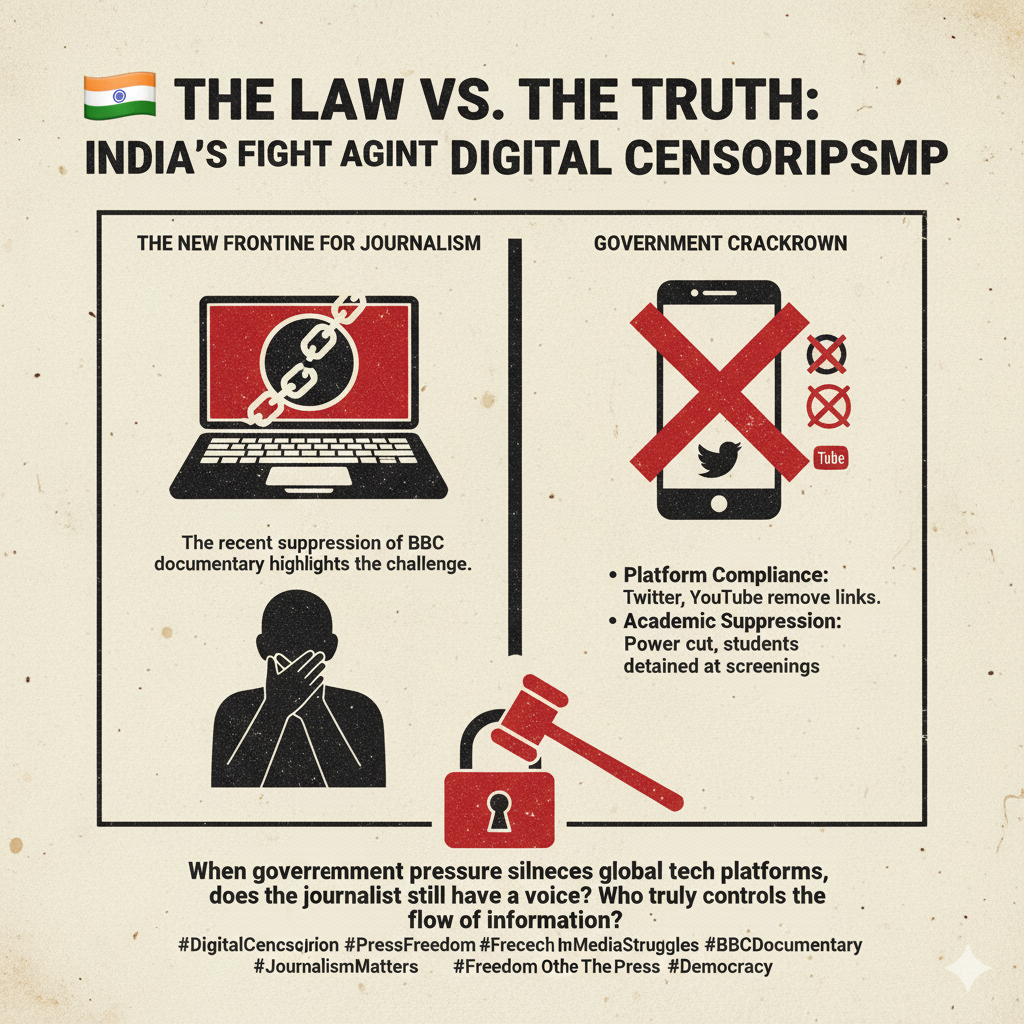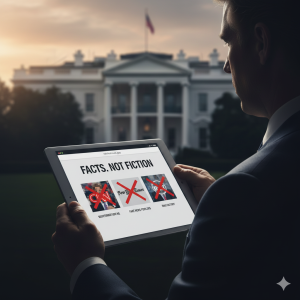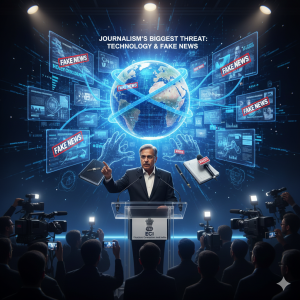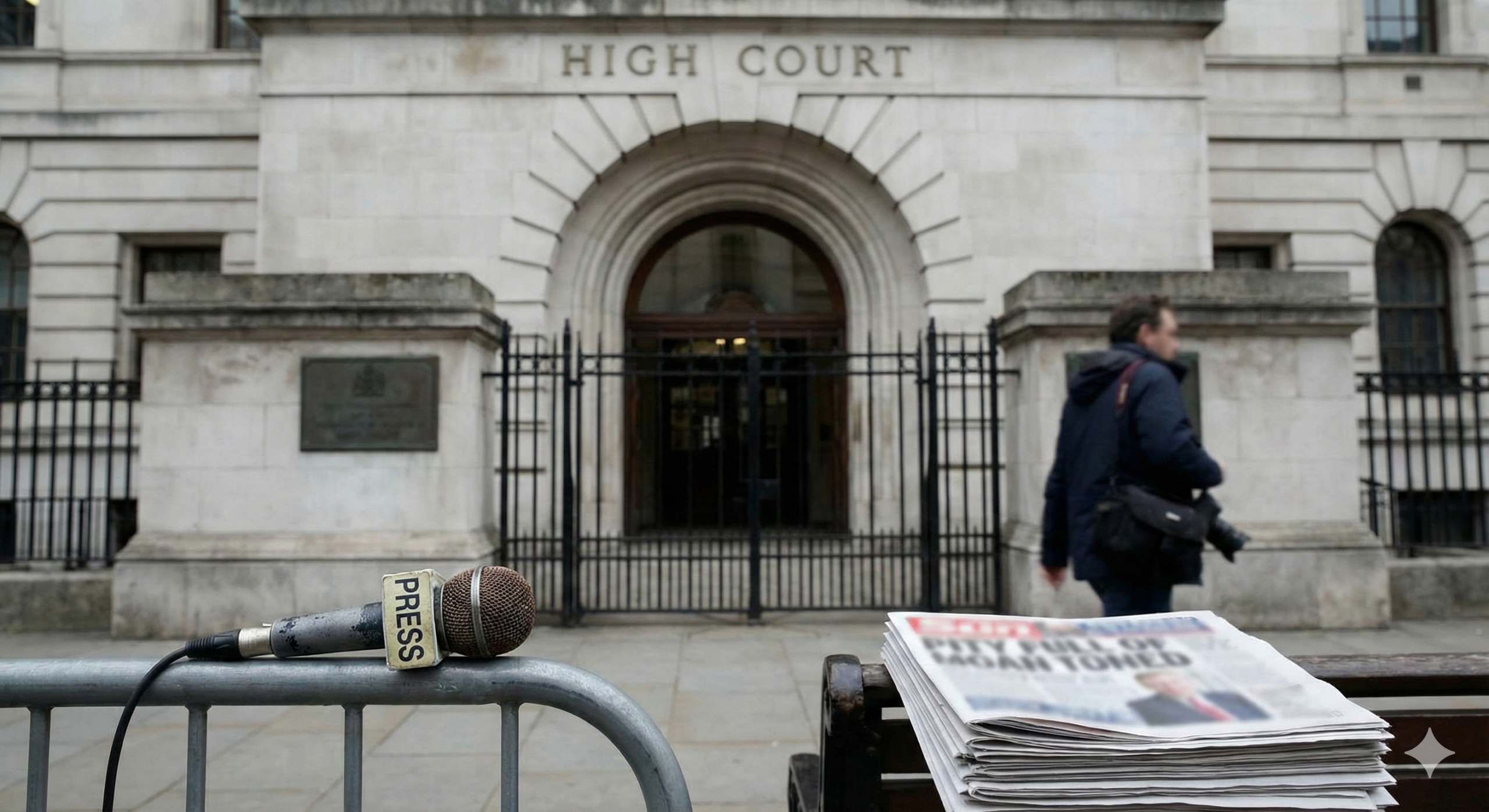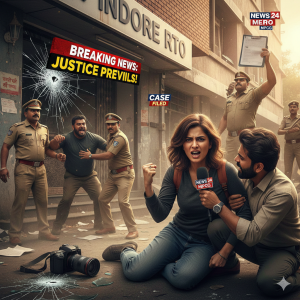THE NEW FRONTLINE FOR JOURNALISM: DIGITAL CENSORSHIP
In modern India, the struggle for a free press has moved from print to the digital realm. The recent suppression of the BBC documentary chronicling the Prime Minister’s role in the 2002 riots starkly highlights the challenge.
The government’s response was swift and coordinated, moving beyond traditional methods:
Platform Compliance: Government officials ordered social media giants and websites to remove links and material, labeling them “hostile propaganda.” Platforms like Twitter (taking down dozens of tweets) and YouTube (removing copies) complied with these requests.
Academic Suppression: Universities were warned against screening the film. At one campus, officials cut the power to prevent the documentary from being shown, and students were detained for attempting a screening.
The Global Debate: This incident exposes a critical flaw in the idea that “free speech simply means what matches the law.” When laws are used to suppress critics, journalists, and historical documentation, following the law becomes an act of censorship, undermining the very essence of a free press.
The fight is no longer just for the right to speak, but the right to access and share the truth.
“When government pressure silences global tech platforms, does the journalist still have a voice? Who truly controls the flow of information?”
